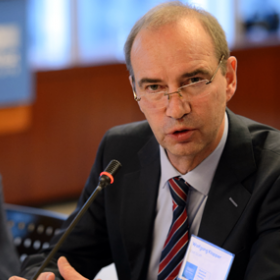
Is the Merkel Approach Still Viable?
In RealClearWorld, Dr. Wolfgang Klapper argues that Germany's Angela Merkel’s no-thrills, strong and steady approach to politics may be sound during times of stability but its viability remains to be seen given the overriding sense of unpredictability in global affairs today.
On March 12th, the Christian Democrats, Bavaria’s Christian Social Union, and the Social Democrats signed a Grand Coalition agreement, forming Germany’s next government. On March 14, the Bundestag elected Chancellor Angela Merkel to a fourth consecutive term, set to run through 2021.
The highly anticipated coalition has a new look.
Only five ministers from the departing Cabinet have taken up posts in the new government. The new administration is much younger, and women hold almost half of the available posts. The CDU and SPD hold six ministries each, and the CSU holds three. The flurry of moves ends a prolonged period of uncertainty, as Germany once again has formed a stable government with a 57 percent majority in the Bundestag. Merkel’s re-election illustrates she still retains the trust of a large number of voters, yet a shrinking support base shows that a growing number of citizens is disillusioned with her policies, particularly with regards to security and migration. The new coalition is a welcome opportunity for Germany to show that it can shoulder more responsibility on the European and global stages.
Photo: "Angela Merkel" (CC BY 2.0) by More pictures and videos: connect@epp.eu

